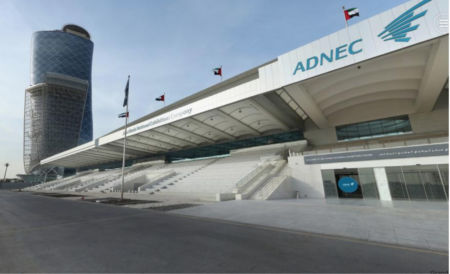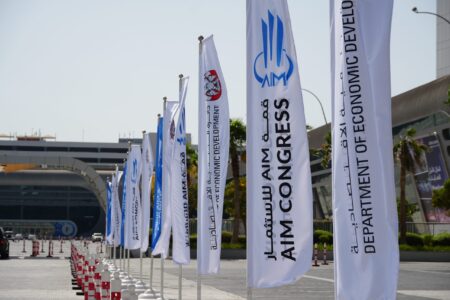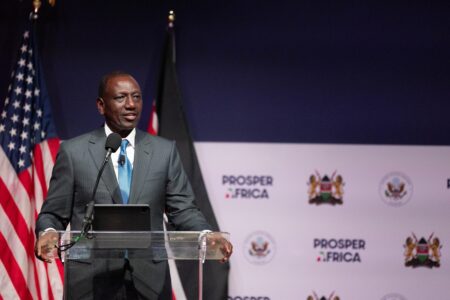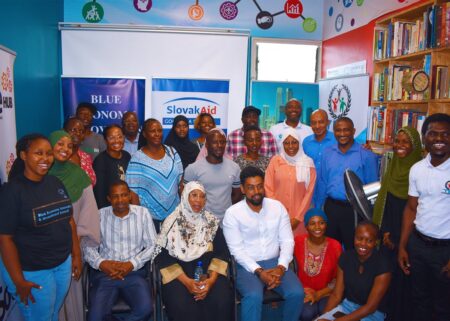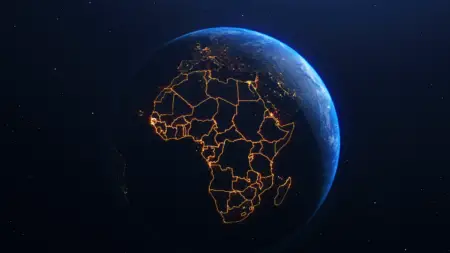- The silent struggle: Women entrepreneurs in Africa and the financial divide
- Questions and answers on confirmation of war crime charges against Joseph Kony at the ICC
- The critical need for energy access in Africa: A roadmap to prosperity
- Killings, abductions, cruel laws worsen East Africa’s human rights record
- Will the Kampala Declaration deliver for African farmers amid climate change?
- Investments in ports, ICT and agriculture key in landmark Kenya-UAE trade pact
- The Just Energy Transition in Africa: Lessons from South Africa and Senegal
- Mukuru Wallet poised to bolster financial inclusion in Zimbabwe
Browsing: Digital economy
- Manufacturing is evolving: Industry 5.0 blends AI and robotics to create smarter, more sustainable factories.
- Smart Cities are rising: Tech-powered urban hubs are redefining how we live, work, and connect in greener, smarter spaces.
- The digital economy is thriving: Seamless digital integration is driving global growth, breaking boundaries, and creating new opportunities.
As the world pivots towards a new era defined by technological advancements, three key sectors are at the forefront of transforming global industries—global manufacturing, smart cities, and the digital economy. These fields are evolving rapidly, shaping the future of economies, urban landscapes, and societies.
The 14th Edition of the AIM Congress aims to delve deep into these innovations, exploring how these three interconnected areas are driving the future of investment, industry, and societal development globally.
Revolutionizing global manufacturing: From 4.0 to 5.0
Global manufacturing is undergoing an unprecedented transformation. Once driven by mass production and assembly lines, the …
- The AIM Congress 2025, scheduled for April 7-9 in Abu Dhabi, will gather global startup entrepreneurs, investors, and regulators under the theme “Connecting Visionaries and Building Futures.”
- The event aims to provide startups with insights, strategies, and opportunities to leverage the latest technologies and trends in the evolving digital ecosystem.
- Participants will collaborate on fostering innovation, forming cross-border partnerships, and driving growth towards building future unicorns.
For startup entrepreneurs globally, the primary dream is to see their idea evolve into one thing: unicorn. To achieve this feat, however, one has to invest a fortune in time, strategy, networks, tech to name but a few, and navigate the world of financing with military precision.
At the upcoming AIM Congress 2025, startup entrepreneurs across the world will be converging in Abu Dhabi in a meeting themed “Connecting Visionaries and Building Futures: Insights and Strategies for Aspiring Entrepreneurs and Visionary Startups & …
- AIM Congress 2025 is poised to show innovations that promise to redefine the finance industry at every level.
- The case for emerging digital currencies amid the need for cross-border regulatory requirements to feature in talks.
- Future of finance discussions to encompass fintech, sustainable finance, and risk management.
Globally, an evolution is underway. Innovations are defining the future of finance as individuals and corporations adopt new ways of borrowing, transacting, and investing.
Policy decisions on interest rates in key markets, vice-like regulatory requirements, and the now ubiquitous digital currencies are increasingly pushing governments to adopt mechanisms to accommodate new demands, and a different era emerges.
The tokenization of digital assets
For instance, private lending, the tokenization of digital assets, and the adoption of Artificial Intelligence (AI) in the financial systems’ value chain are fast-defining new modes of cross-border transactions as the future of finance unfolds.
For policymakers, investors, companies, and non-state …
- Kenya lands $ 1 billion investments for digital Infrastructure investment from Microsoft and G42.
- Among the top priorities is the construction of a green data center. This facility is to be built by G42 and its partners.
- The initiative will enhance internet connectivity through investments in marine and terrestrial fiber cable infrastructure.
During Kenyan President William Ruto’s visit to the US, Tech giant Microsoft & G42, an Emirati AI company, announced a $1B investment in Kenya to support its digital transformation.
This initiative, undertaken in collaboration with the Republic of Kenya’s Ministry of Information, Communications, and the Digital Economy, is a milestone in the region’s technological advancement.
The collaboration will invest an initial $1 billion to support different components of the initiative.
Among the top priorities is the construction of a green data center. This facility, to be built by G42 and its partners, will host Microsoft Azure services in …
- Cyber security spending in Kenya is still low with half of state entities exposed to malicious attackers.
- Cyber Security Spending is projected to reach $8.4 billion in 2027.
- Banks will account for 85.6% of the financial services sector’s total spending on security products.
The increasing online threats to businesses across the region will see companies and government increase their cyber security spending to excess of $6.2 billion this year, new industry insights have shown.
Spending on security products and services in the Middle East and Africa (MEA), excluding Israel, will grow 10.3 per cent in 2024, reaching $6.2 billion, according to the latest Worldwide Security Spending Guide from International Data Corporation (IDC).
The firm’s newly released forecast indicates that this figure will reach $8.4 billion in 2027, representing a compound annual growth rate (CAGR) of 12.0per cent over the 2023–2027 forecast period. Security software will account for the majority of …
- Three Kenyan startups have been selected for an incubation programme after winning the Cyber Security Hackathon at the just concluded Blue Economy Innovation and Investment Summit.
- The three startups, which are based in Mombasa include Bio Secure, Tide Safetynet and Seatrust Navigator.
- Sote Hub Founder David Ogiga says the three startups will receive six months technical and financial support to bring their ideas to life.
Three Kenyan startups have been selected for an incubation program after winning the Cyber Security Hackathon at the recently concluded Blue Economy Innovation and Investment Summit. The startups, based in Mombasa, include Bio Secure, Tide Safetynet, and Seatrust Navigator. Sote Hub Founder David Ogiga stated that these three startups would receive six months of technical and financial support to bring their ideas to life.
“Our focus for this year’s hackathon at the conference was circular economy, cyber security, blue economy, climate change, and the digital …
An efficient crypto mining industry can generate more job opportunities in Africa as the demand for miners, blockchain specialists, and technology specialists increases, . This encourages nations to enhance their energy and technological capacities to support crypto operations. These enhancements can considerably benefit other industries and the economy as a whole.
African nations must embrace the chance to become a crypto mining hub. This can aid in the digital economy’s growth, citizens’ financial standing, and the infrastructure for energy production. Consequently, African governments can invest in cryptocurrencies to acquire alternative funding sources for developing renewable and alternative energy sources.…
World Bank further notes that the unified digitisation of the East African economy is estimated to generate up to a US$2.6 billion boost in GDP and 4.5 million new jobs that will largely benefit those at the bottom of the pyramid.
Data by GSMA reveals that by the end of 2020, 495 million people subscribed to mobile services in Sub-Saharan Africa, representing 46 percent of the region’s population, an increase of almost 20 million on 2019.
GSMA revealed that smartphone connections will more than double by 2025 in Sub-Saharan Africa with the East African Community registering the largest incremental growth, led by Rwanda and Tanzania. …
Another study by PureProfile, an advertising agency company, surveyed investors responsible for around US$700 billion assets under management. The results showed that twenty-five per cent of investor managers expect Africa’s internet industry to increase by 51 per cent in the next three years.
Over 71 per cent of professional investors expect the affordability of mobile phones in Africa to improve by 2025. Currently, the mobile phone economy accounts for an average of 6.8 per cent of monthly incomes. Ninety-seven per cent of all professional investors believe that the Coronavirus pandemic has accelerated the demand for mobile phones.
World Mobile is compounding its unique hybrid mobile network supported by low altitude platform balloons in Zanzibar, which it plans to roll out throughout the continent. The company is already in discussions with government officials in Tanzania, Kenya, and other territories underserviced by traditional mobile operators.…
Even though the country knows that diamonds are a finite resource, it still holds the world’s richest mine and is the biggest producer of gem diamonds. The country has become something of a role model for good development, powered by diamond mining.
20 percent of Botswana’s gross domestic product comes from this one commodity.
It propelled the country from the second poorest country in the world in 1966, at US$70 per person per year, to a middle-income country in 2021. Botswana estimates the diamond economy will start dropping in 2030.…






